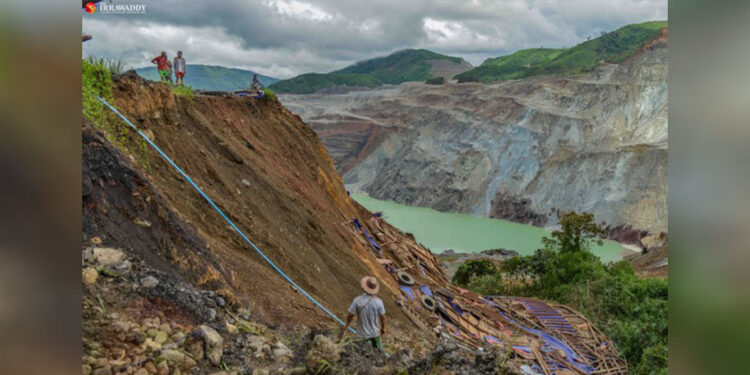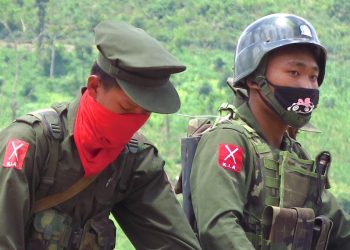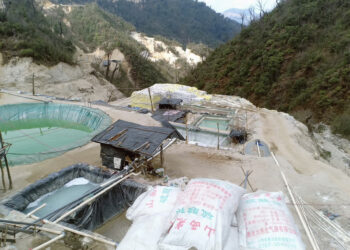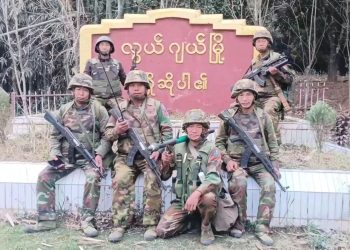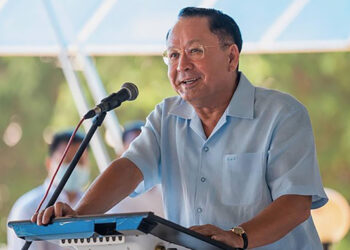YANGON — Myanmar’s president has instructed the government, state-owned enterprises and private companies involved in the country’s extractive sector to publicly disclose any contracts from Jan. 1.
The President’s Office stated that all parties must follow “contract transparency”, starting on New Year’s Day, in collaboration with Myanmar Extractive Industries Transparency Initiative (MEITI). The sector includes the extraction of oil, gas, timber and minerals.
President U Win Myint said all the contracts carried out by the Union, states and regions, government departments, state-owned enterprises and private companies must disclose the full text of any contract, license, concession or other agreement.
A lack of transparency in the extraction of Myanmar’s natural resources in resource-rich, ethnic-majority states helps perpetuate and finance violent conflict. Many ethnic armed groups and military-aligned militias are involved in the extractive industries, further fueling conflict, according to Global Witness. The extractive sector, which includes jade mining in Hpakant, Kachin State, is controversial and often deadly, mostly run by companies owned by armed groups or the military or their cronies.
According to the latest EITI report for 2017-18, the extractive sector accounted for 4.8 percent of the country’s GDP, 5.2 percent of state revenue and 35 percent of exports in that financial year. Myanmar EITI in 2016 estimated that 60-80 percent of gemstones in Myanmar were not declared and bypass the formal system.
The President’s Office said all contracts must be uploaded to the websites of the MEITI, Ministry of Natural Resources and Environmental Conservation and Ministry of Electricity and Energy.
Daw Khin Saw Htay, a policy analyst at Forest Trends who offers technical support to the MEITI, told The Irrawaddy that all re-new contracts and new contracts signed from next year must be disclosed.
She said there would be many challenges in identifying military-related business agreements involving the extractive sector.
“The commitments [to contract transparency] are made by the president and State Counselor Daw Aung San Suu Kyi. But the enforcement will be carried out by the ministries [for natural resources and electricity]. Enforcement largely depends on their capacity. They need to push hard for all parties to disclose [their contracts],” Daw Khin Saw Htay said.
The MEITI will monitor the implementation on the ground after the transparency policy comes into force, she added.
The MEITI said: “Contract transparency allows citizens to understand the agreed terms for extractive projects in their countries, to check that every party is following them and to determine who is accountable for non-compliance.”
Moreover, EITI said communities affected by extractives operations can see how revenue from royalties and taxes flows to national, regional and state governments. It said people can understand what obligations are placed on companies to protect communities and the environment, make social payments or provide employment.
Contract disclosure makes it easier for companies to show they are complying with their financial and social obligations, helping them to address reputational risks, the EITI said.
“Out of the Shadows”, a July report by Global Witness, said of 162 companies in Myanmar’s extractives sector included in the first batch of beneficial ownership information disclosures, only eight declared that they had at least one beneficial owner who qualifies as a “politically exposed person” (PEP).
The report said it identified at least 10 additional companies whose beneficial owners have or had close ties to present or former military commanders or leaders of ethnic armed groups and should be listed as PEPs. It said Myanmar’s military-owned Myanma Economic Holdings Public Company Limited’s disclosure appears incomplete and inaccurate, lacking any PEP declaration and potentially omitting beneficial ownership information, it said.
You may also like these stories:
Myanmar COVID-19 Vaccination Expected from April
Myanmar to Lift COVID-19 Ban on Domestic Flights
Yangon Govt Members Get COVID-19


